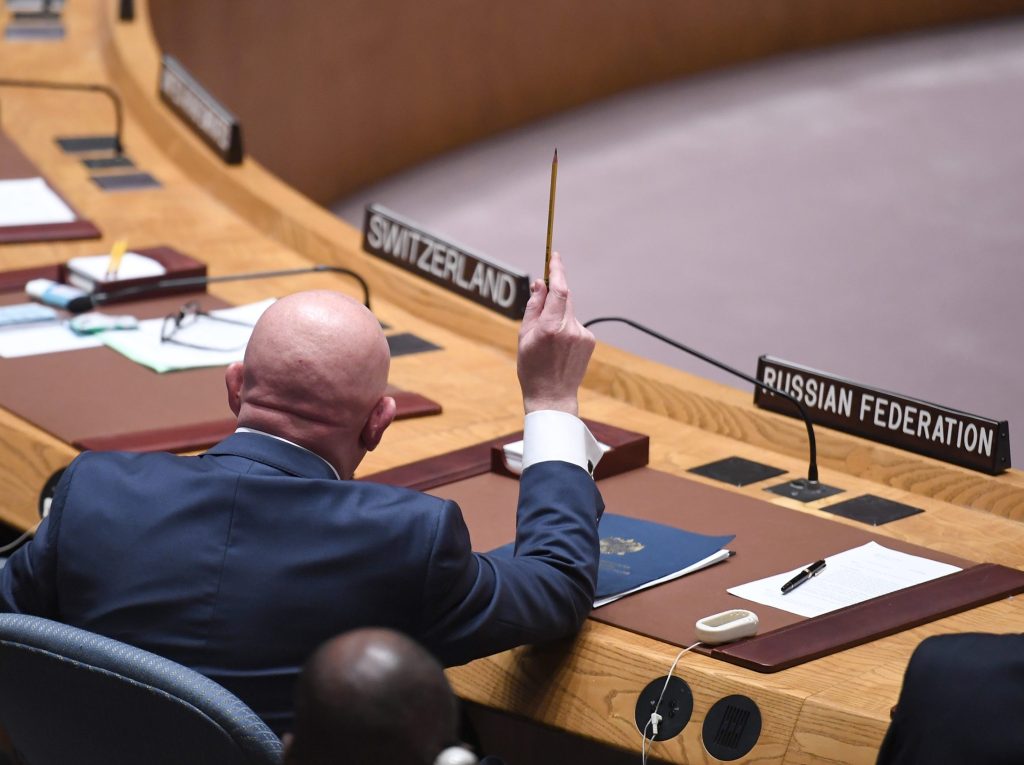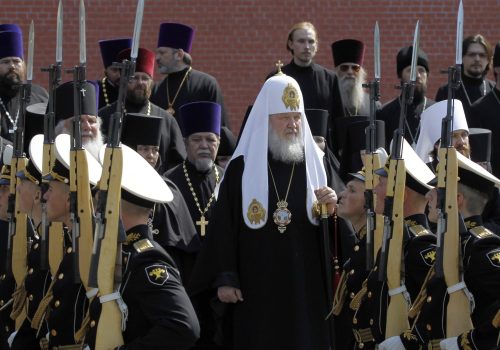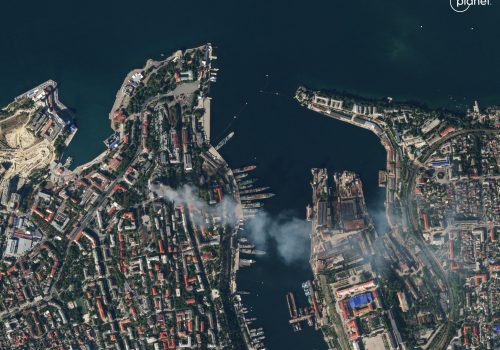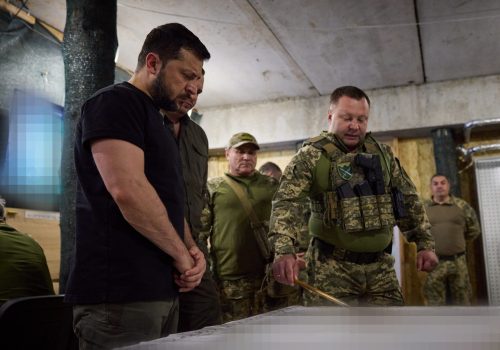Sanity prevailed at the UN this week when Russia failed to win a seat on the United Nations Human Rights Council. However, this minor setback for the Kremlin cannot disguise the far deeper dysfunction within the UN that has been revealed by Russia’s full-scale invasion of Ukraine.
Ever since the invasion began in February 2022, Moscow has used its position as one of five permanent members of the United Nations Security Council to block efforts to end the war or hold Russia accountable. Faced with relentless Russian obstruction, UN leaders have been forced to focus on mediation efforts, while the United Nations General Assembly has been limited to voting on a series of largely symbolic resolutions condemning the invasion. If the purpose of the UN is to prevent major wars, the current approach is obviously not working.
Stay updated
As the world watches the Russian invasion of Ukraine unfold, UkraineAlert delivers the best Atlantic Council expert insight and analysis on Ukraine twice a week directly to your inbox.
The full-scale invasion of Ukraine has focused international attention on Russia’s problematic role as one of the most influential nations at the United Nations. Some have asked why Russia has not been expelled for its attack on Ukraine, and have pointed to the expulsion of the Soviet Union from the UN’s predecessor, the League of Nations, in response to the November 1939 invasion of Finland.
Others have questioned the legal status of the Russian Federation as a UN member state, noting that Russia has never actually gone through the proper formal and recognized procedures of applying to become a member of the United Nations. The Soviet Union was a key founding member of the United Nations and enjoyed a seat on the UN Security Council, but the USSR officially ceased to exist on December 26, 1991. Russia then took over the vacated Soviet seat at the top table of the United Nations without any further formalities.
When Czechoslovakia ceased to exist just two years later, the two new nations that had once been component parts of that country, the Czech Republic and Slovakia, both formally applied for and were granted membership status in the United Nations. The same is true for the states that were once part of Yugoslavia. This is a step that Russia never took. The Charter of the United Nations states that “the admission of any such state to membership in the United Nations shall be effected by a decision of the General Assembly.” While Slovakia and the Czech Republic went through this procedure, the Russian Federation did not.
The UN Charter also states that membership of the body is contingent on “accepting the obligations contained in the present Charter.” On these grounds, too, Russia does not meet the required standards. The UN Charter states that all United Nations members “shall refrain in their international relations from the threat or use of force against the territorial integrity or political independence of any state.” By invading Ukraine and attempting to annex entire Ukrainian regions, Russia has evidently violated this fundamental commitment expected of all UN member states. It can therefore be argued that Russia’s membership of the United Nations is invalid as it was not formally applied for, and because the invasion of Ukraine places Russia in direct breach of the UN Charter.
This raises obvious questions over Russia’s continued presence among the five permanent members of the United Nations Security Council. Russia’s status within the UNSC is particularly controversial as Moscow stands accused of repeatedly abusing its veto power to further its own foreign policy objectives and avoid censure for breaches of international law. The Security Council’s five permanent members are the only nations to wield veto power.
Eurasia Center events

Almost twenty months since the invasion began, few would argue that the devastating scale of Russia’s attack on Ukraine has highlighted the shortcomings of the United Nations. As noted by Tom Grant, a Senior Fellow at the Lauterpacht Centre for International Law, “Russia’s aggression against Ukraine is the most serious violation of the UN Charter in the Charter’s history.” How can a country engaged in Europe’s largest invasion since World War II and led by a man wanted by the International Criminal Court for war crimes be allowed to undermine an organization committed to maintaining world peace?
The absurdity of Russia’s position among the five permanent members of the UN Security Council is fueling calls for fundamental reform of the United Nations. For two years in a row, the reform of the United Nations Security Council has featured in US President Joe Biden’s annual address to the UN General Assembly. The reform debate centers on the need for the highest body at the United Nations to be more representative. At present, the UNSC lacks any permanent members from Africa or Latin America, and is also missing valuable input from emerging powerhouses such as India and significant developed economies including Japan.
One of the roadblocks to such reform is the current make-up of the Security Council, which under the existing regulations would be required to vote to approve any expansion of the UNSC. This would likely be blocked by Russia, due to perceptions in the Kremlin that any expansion would weaken the Russian position. Tellingly, other permanent members would also see their influence diluted by an expanded UNSC, and yet the push for this reform is being led by one of them, the United States.
Other possible reforms of the United Nations include the removal or restriction of veto powers for permanent members of the UN Security Council. This could potentially prevent individual countries from unilaterally derailing efforts to address global crises or uphold international law. Some critics feel even this would not go far enough, and argue for a complete rethink of the role played by the United Nations in international affairs.
The UN was founded in 1945 to maintain international peace and security, but it has been unable to prevent one of its leading members from invading a neighbor and committing war crimes not witnessed in Europe since the darkest days of twentieth century totalitarianism. Clearly, the UN Security Council is broken and the entire UN approach to issues of war and peace is no longer fit for purpose.
Russia’s invasion of Ukraine is a watershed moment in world history that will have a profound impact on the future of international relations. If the United Nations wants to survive as an institution and remain relevant in the decades ahead, it must be ready to embrace fundamental reform.
Paul Niland is the founder of Lifeline Ukraine.
Further reading
The views expressed in UkraineAlert are solely those of the authors and do not necessarily reflect the views of the Atlantic Council, its staff, or its supporters.

The Eurasia Center’s mission is to enhance transatlantic cooperation in promoting stability, democratic values and prosperity in Eurasia, from Eastern Europe and Turkey in the West to the Caucasus, Russia and Central Asia in the East.
Follow us on social media
and support our work
Image: Russian UN Ambassador Vasily Nebenzya interrupts comments during the Security Council meeting on maintenance of international peace and security of Ukraine, United Nations Headquarters, NY, September 20, 2023.(Photo by Anthony Behar/Sipa USA)




